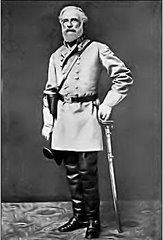MUSIC, CULTURE, THE CHURCH, AND THE WORLD
It is obvious that there is a relation between different styles of music and cultures. Each style of music portrays its very own culture through the music, and sometimes through lyrics presented. Although the music and culture relation can change over time, and is often relative to a particular point in time, it is wrong to assume that one’s music does not have influence on one’s lifestyle, or that one’s lifestyle does not have influence on one’s music. The two are at some very real length related.
For example, country music traditionally portrays the folk lifestyle of rural Southern and Western United States. Rap music generally portrays the lifestyle of the inner cities and streets. There is not necessarily anything wrong with either lifestyle, whether it be rural or inner city. But in today’s world, rightly or wrongly, we see more of a negative image portrayed to the inner city lifestyle. Thus, rap music has generally been held in low regards by fundamentals, whereas country music (to some exceptions) has not been held as "wrong" or "immoral." We even see related styles of country music, such as Southern Gospel or bluegrass in Christian contexts.
These are just mere examples. We could compare soft rock to heavy metal; classical music to jazz music, and so on. Each general style of music portrays a different setting, both in the sounds, and often even reaching to the lyrics. As a songwriter myself, while studying music and writing music, I notice changes in the style, as I portray different settings in the music I write.
In my blog, "The Basement" in which I posted just a few weeks ago, I pointed out the different styles of music, and which I felt are better suited for Christianity, whether for private listening or for corporate worship. I in no way wanted to judge the heart of people whose music tastes are different than mind. I’m sure my tastes in music are very different from a lot of people, and I am fine with that. To reiterate what I wanted to say, I will briefly define my views as this: music can be played for the glory of God, even if it is not "Christian" music; music that is in the name of God and intended to be Christian, should be done in a manner that shows an appropriate context, and does not portray an image that is not suitable to Christianity; corporate worship, for the body of believers, should generally be a style that is distinct from what the world offers. I did also make the point that one should not be judged personally by not following this basic pattern. One may desire to give glory to God in a way that does not follow this pattern, or rule, and God may hear their worship. I simply believe that this is the best manner to give that glory to God. No one should be judge because they are not perfect, because no one is perfect. However, we should all strive to perfection, and as growing Christians, should come closer to that standard.
In this blog, I will seek to defend those basic points in further detail. In doing this, I will even point out certain bands and musicians popular today, from all different genres of music, both Christian and secular. I will give a review of these bands and artists in the context of my points in this blog.
Panic! At the Disco. After hearing a fair amount about them, and knowing none of their music, I decided I would see what they were about. I had already read that their lyrics were somewhat non-Christian, but I wanted to see for myself. I went to lyrics.com, and searched them. I was disgusted after reading some of the lyrics and listening to the music. I thought to myself, "If our culture appreciates this kind of music, then our culture is not where it should be." The music was essentially sac religious. It also got annoying hearing frequent uses of the "F word" and of "G-D." Some of what was said seemed to essentially deny God. One of their song titles is "Build God, Then We’ll Talk." You can search them to learn more about them for yourself. The style of music seemed to nearly reject musical theory. What happened to the definition of music being "a group of notes arranged to make a melody" or something along those lines. Listening to the one or two of their songs, the definition seemed to be "wild noise with a satanic voice in the background." This style of music (not only seen through this band, but others), has earned its recognition of claiming a culture of a sinful lifestyle, centered in drugs, sex, moral relativism, and violence.
The Fray. I still don’t know much about The Fray, but I do know at least two of their songs pretty well, and another song is at least recognizable to my ears. Unlike Panic! At the Disco, The Fray at least offered a more mellow sound, with better lyrics. The Fray has not come out as a Christian band, but the lyrics produced are consistent within a Christian worldview. The song, "How To Save a Life" even seems to have somewhat of a decent theme. The lyrics are not watered-down either. They are deep, and both intellectual and heart-originated. I think that the band may be a fad, but at least they are a fad worth listening to for a short period of time. I’m not so sure why they were as popular as they were, or why they are as popular as they are, but their music, from what I have heard, does not promote a sinful lifestyle. Their style of music in general, is also not one that seems to promote a sinful lifestyle. The style of music would probably not be best suited as "Christian," especially not "corporate Christian" but the music does not relate to a lifestyle of drugs, sex, moral relativism, and violence as was noted of Panic! At the Disco. Other bands and artists, such as Plus One, Death Cab for Cutie, Ben Smolin, Switchfoot, etc., whether Christian or secular, have produced similar sounding music whose lyrics are also consistent within a Christian worldview. (The music may not be mere identical to The Fray, but close enough to compare). The Fray may not be the best band ever, and it may be nothing more than a fad. But at least the music and lyrics are acceptable to a Christian worldview, and fine for Christians to listen to.
Hawk Nelson. Forgive me for not being up into all the modern Christian music, but I had not heard of Hawk Nelson until this past Winter Jam. I do not know too much about this band to judge in great detail, but from the little I have seen and heard of it, it seems to be a watered-down replica of its watered-down secular culture musical counterpart. The church is distinct from the world. As this music even in secular uses seems watered-down for its own use, I think that this music as proclaimed Christian waters down the Gospel. Forgive me for what seems to be such harsh comments to a group who is probably trying to give praise to God. Once again, if that is indeed their intentions, then I believe that God hears their worship. I know that the music of Hawk Nelson is labeled as Christian and the music of The Fray is not labeled as Christian. But that is essentially my point. The Fray avoids watering down the Gospel by simply portraying what is consistent within the Gospel through means not identifying themselves as Christian. A non-Christian listening to Hawk Nelson may tell himself "If this is what Christianity is, then it seems no different than the world." This goes for both the music and the lyrics. The lyrics of one song seemed to be about how we should help a poor fatherless boy. That’s a good thought, and the church should help those who need help, whether it be physical help, spiritual help, emotional help, etc. However The Fray presents as good of a theme in their music, without claiming "This is what Christianity is." Neither does it say, "This is what Christianity is not." It serves to help both the Christian and the non-Christian by promoting a Christian-consistent theme. Hawk Nelson does the same, except they claim it as Christianity itself.
Steven Curtis Chapman. Another artist I heard at Winter Jam was an older artist, Steven Curtis Chapman. Many would assume that because I considered the music of Hawk Nelson to water-down the Gospel, then I would assume the same of Steven Curtis Chapman. However I do not. It is true that his music was soft rock and the lyrics were not deep, theological, or the kind to make you cry. But they don’t have to be. Steven Curtis Chapman came across as presenting a theme that is Christian, and proclaiming Christianity through himself and his music. But he does not come across as watering down the Gospel. He does not wear rocker T-shirts, have goofy spiked rocker hair, and tattoos. He simply sings music, giving glory to God, and does not seem to search for a big name in himself. I do not think that his music is best suitable for corporate Christian worship, but I do think it is good to listen to. After hearing his performance, I wanted to "dive in" and I wanted to go "wake the neighbors, and get the word out" and to "live out loud." After hearing Hawk Nelson, I was not sure if I wanted to help the poor kid or not. Maybe that is just me, but then again, maybe not. There are plenty of similar bands and artists as Steven Curtis Chapman, who praise Jesus, without watering down Jesus’ message. Such bands/artists include Third Day, Michael W. Smith, Mercy Me, etc. These bands and artists seem to put more emphasis on the personal relations they have with Jesus. I personally feel that in our culture today, we see the corporate relationship to Jesus sadly taken away. However there is a place for the personal emotions, and I am glad to see these bands and artist portray this message without watering down the Gospel to merely nothing.
There are all other sorts of bands and artists similar to these, and all of those in between. There are so many that seem too "edgy" for Christianity, but does not seem to directly attack Christianity. We could ask so many questions of or similar to "Should I not listen to this song, because of its one curse word?" You could ask, "Should I reject any form of hard, heavy, punk rock, whether or not it is Christian, sac religious, or anywhere in between, because much of its style portrays a wrong image?" Some of these questions I can not answer adequately. I myself do not listen to the ‘hard, heavy, punk rock’ partly because of its image, but also because of the fact I don’t like that style of music in general. In country music, there are probably plenty of songs that seem to be against Christianity by its references to drinking or cheating. Could we label country music in the same category as punk or rap in these regards? Even Carrie Underwood’s song, "Before He Cheats" portrays the image of a cheating man, and a woman’s revenge. Both cheating and revenge seem to be "against the Bible." Should Christians reject this song, Carrie Underwood altogether, Country music all together, or even music altogether? Certainly there is a line somewhere in this, whether before the song itself or anywhere in between, because God tells us through His word to worship Him in song. Some genres of music and some songs may have an overlap (such as this song) in the culture it presents. You may could take one song, and use it to destroy the faith, while taking the same song, and use to it defend the faith, all depending on the mental and emotional aspect you put into the song and its meaning. (This may sound a little stretched, but the general point is made). The difference with country music, compared to rap music and punk music (if they even qualify as music), is that the overlap of good meanings and bad meanings found in country music is more apparent, and there are plenty of country songs with good meanings. Rap and punk, rightly or wrongly, seem to portray more of a bad image altogether, with little overlap in what the meaning of the songs could be about.
Regardless of all of these questions, I believe that both the church and the world have essentially lost its music because the of the culture (or the culture has lost what is should be because of the music). There is a relation. Rich Lusk made this point so clear in his sermons, "Through the church the song goes on (parts I & II)" ( trinity-pres.net/audio/sermonindex.php 2/11/07,2/18/07 ). If our song is wrong, then our culture is liable to be wrong. Secular music is not bad in and of itself, and even its music can reform or tear down a society. In today’s music, we see a watered down approach to music. When music was once supposed to be about life, and the emotions that flow out of it, it has now seemed to turn into being about money and fame (not to mention the drugs, sex, moral relativism, and violence shown in some songs and styles). Even country music, which traditionally is supposed to "tell a story about life," has been watered down.
In the same way, Christian music has been watered down. I wish that we as a church could return to singing "We are God’s People," instead of what Christian music so often offers today. Maybe its time as a Christian community we sing "We are God’s People, the chosen of the Lord; Born of His Spirit, established by His Word" or "Amazing Grace, how sweet the sound, it saved a wretch like me" or "The King of Glory comes the nation rejoices; Open the gates before Him, lift up your voices." If we want to revolutionize the world, one place it must start is in the song we sing.
"Praise ye the Lord. Praise God in His sanctuary: praise Him in the firmament of His power. Praise Him for His mighty acts: praise Him according to His excellent greatness. Praise Him with the sound of the trumpet: praise Him with the psaltery and harp. Praise Him with the timbreal and dance: praise Him with stringed instruments and organs. Praise Him upon the loud cymbals: praise him upon the high-sounding cymbals. Let everything that hath breath praise the Lord. Praise ye the Lord" Psalm 150.
Through the song and the church, both continue on.
What do you think?
Ryan
Subscribe to:
Post Comments (Atom)










No comments:
Post a Comment